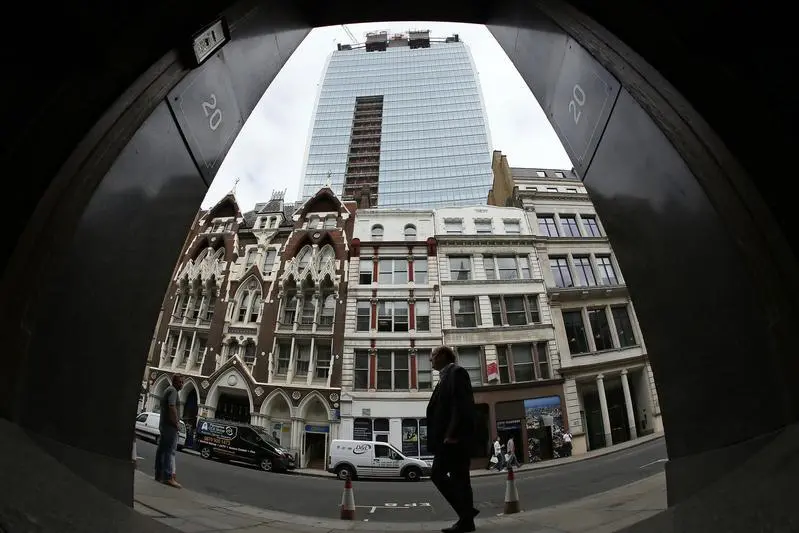PHOTO
Wednesday, Feb 15, 2017
Dubai: The Middle East’s wealthy investors and institutional funds are not souring on London’s real estate opportunities as a “hard Brexit” becomes reality. If at all, they are just hedging their bets by looking elsewhere at the same time.
“The UK regions are more popular than they were — developers and investors if they want something outside London, Manchester and Edinburgh would be the first picks,” said Alan Robertson, CEO for JLL’s Middle East and Africa operations. “There are cities like Birmingham, Leeds and Bristol.
“In Q4-16, there was an office property in Edinburgh let to the government for 15 years that was put up for sale. Of the 12 bids, four of them came from the Middle East, even though the eventual buyer was not from the region.”
Ever since Brexit became a fact, London real estate’s prospects have always been viewed through the filter. On the one side, it was suggested that London would be less of an automatic choice as an investment destination. And on the other, there was the feeling it was a good time to get in because of the pound’s weakness since the referendum results came out late June.
The reality on the ground is, as if often the case, somewhere in between. “The UK is still popular because it’s a market investors are familiar with,” said Robertson. “It’s a market where leases are comparatively long, thus establishing a 10- or 15-year income.
“They are buying investment properties that are leased and can guarantee an income. There’s also private investors looking at residential for investment purposes, and some of them are less sensitive to income.
“Mideast buyers from dollar-pegged currencies find UK prices are now 15-20 per cent cheaper. Although there is more uncertainty (after Brexit) that has been compensated by the better value in currency terms.
“There is still interest in off-plan, but buyers are more selective. There’s also been the tax changes (on stamp duty). That makes barriers to entry more expensive. Parts of Central London have become more expensive.
“Buyers are looking for better value in less expensive areas. they are also looking outside London.”
And if they can’t have London, there’s always the US and, stretching the investment horizons further, Germany. In the former, the coastal cities — New York, Miami, Boston, Chicago, Los Angeles, San Francisco, Seattle — will always be on the region’s investor’s wishlist. “The US has always been of interest to some extent, given there’s no currency risk as long the peg is there,” said Robertson.
“There is a view that regardless of some of the things Trump may do, his policies will be favourable to the economy and business players. Eventually that will percolate to the real estate.
“Germany is seen as a bit of a rising star — it’s a good defensive play because it’s a strong economy and there’s the currency benefit as the euro falls against the dollar. Come good times and bad, Germany will be a safe place to invest.”
Robertson does not buy the suggestion that Middle East investors are taking longer to seal overseas realty transactions given all of the fluidity surrounding the markets. “As a rule, Middle East buyers tend not to be instant purchasers,” the CEO said. “Even when they were keen on London, they were not like the Far East buyers who would go a hotel ballroom in Hong Kong or Singapore and two hours later be issuing cheques for properties they are seeing the first time. Middle East buyers are more considered.
“That’s not changed — what may have is they are more selective in what they look for.”
What Middle East investors are likely to do with real estate this year
• Some of the funds generated in the region could very well remain locked in real estate here. “We expect renewed interest in Dubai as investors sense the bottom of the market cycle and seek to continue to diversify from their home markets elsewhere in the region,” said Alan Robertson of JLL.
• The UK will remain the most important market outside the region. “Brexit worries have been counter-balanced in part by the favourable changes in exchange rates,” said Robertson.
• As for US markets, “The general expectation is that activity levels will be similar to 2016 and in some locations and sectors, slightly more active. Rental growth in the residential and office sectors is generally expected to slow, but still remain positive. As more office supply reaches completion it is expected that market conditions in 2018/19 could move in favour of tenants.”
By Manoj Nair Associate Editor
Gulf News 2017. All rights reserved.





















